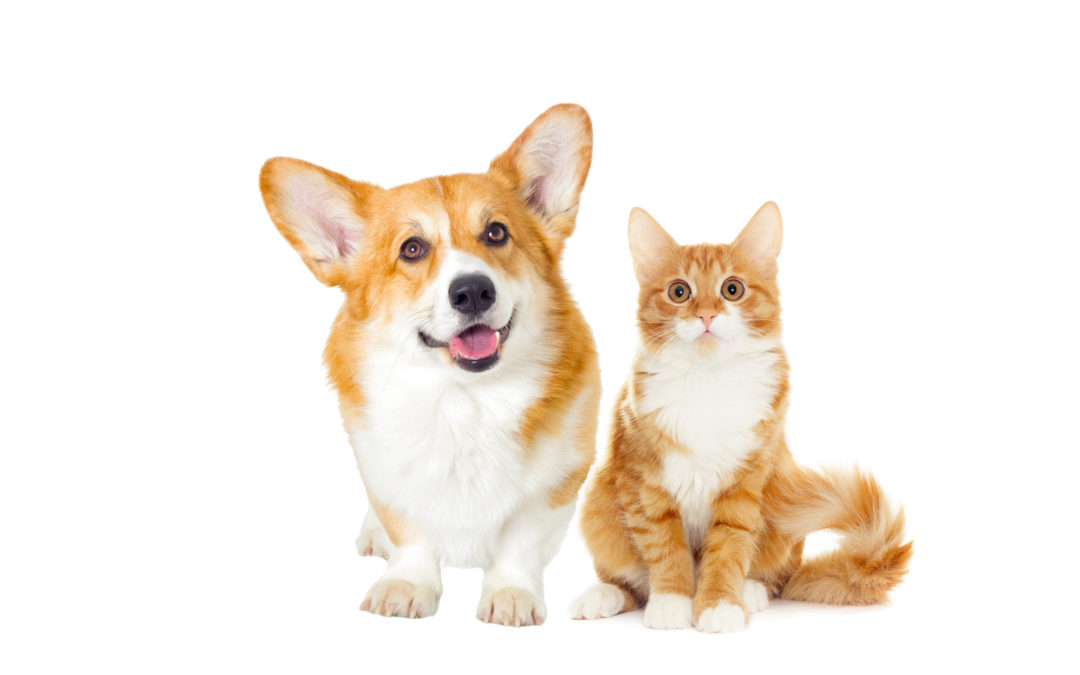The COVID-19 crisis is fast-moving, and with all the information in the news and online, we wanted to pass along the facts regarding the virus and pets. Can dogs or cats catch COVID-19? Can they pass it onto you? If you have the virus, should you isolate yourself from your pet?
Can Pets Get COVID-19?
Coronaviruses are a large family of viruses. Some cause illness in people and others cause illness in certain types of animals. Coronaviruses that infect animals can become able to infect people, but this is rare. At this time, the CDC says there is no evidence that companion animals, including pets, can spread COVID-19, or that they might be a source of infection in the US.
What About the Three Pets That Tested Positive?
1st Case: A 17-year old Pomeranian in China, whose owner was sick with COVID-19, tested “weak positive” for the virus. However, the dog never showed signs or symptoms of the virus. The dog was placed in quarantine, and was released after further tests produced negative results. The dog died two days after it was released from quarantine. Hong Kong’s Agriculture, Fisheries and Conservation Department (AFCD) said the cause of death couldn’t be determined after the owner, who recently recovered from a coronavirus infection, declined to conduct an autopsy.
2nd Case: A 2-year old German Shepherd that lived with a person diagnosed with COVID-19 in China tested positive for the virus. The dog, along with a 4-year old mixed-breed dog from the same home, were placed in quarantine on Wednesday. Oral and nasal swabs Wednesday and Thursday returned positive readings for the German Shepherd, but were negative for the other dog. According to an AFCD spokesperson, neither animal has shown any signs of the COVID-19 disease. The AFCD will closely monitor both dogs and conduct repeated tests.
3rd Case: a cat in Belgium also tested positive for COVID-19. The cat lived with her owner, who was also diagnosed with the disease. The owner started showing symptoms of the virus a week before the cat did. The cat had “transient respiratory and digestive disorders”. Infectious disease experts say this is another instance of human-to-animal transmission.
The American Veterinary Medical Association (AVMA) said that infectious disease experts and multiple international and domestic human and animal health organizations, all agree there is no evidence at this point to indicate that pets become ill with COVID-19 or that they spread it to other animals, including people.
Can I Get COVID-19 From Petting a Pet?
There is currently no evidence that companion animals, including pets, can pass COVID-19 to people.
Signs of COVID-19 in people include:
- A dry cough
- Fever
- Shortness of breath/difficulty breathing
What Do Vets and Other Experts Recommend If I Get COVID-19?
Those that are not ill with COVID-19, can interact with their pets as they normally would. They should continue to practice good hygiene during those interactions (e.g., wash hands before and after interacting with pets; ensure pets are kept well-groomed; regularly clean pet’s food and water bowls, bedding material and toys.)
Those ill with COVID-19 should limit contact with animals until more information is known about the virus. Have a friend, family-member or other member of the household take care of walking, feeding, and playing with pets. If you have a service animal, or you must care for your pet, then wear a face mask; don’t share food, kiss or hug them; and wash your hands before and after any contact with them.
Hopefully, you will not get sick from COVID-19, but consider preparing for the situation in case you do:
- In addition to gathering your own supplies, such as prescription medications, pain relievers, food staples, and easy-to-prepare meals, make sure you have at least 2 weeks to a month’s worth of your pet’s food and any medications (including parasite preventives) stocked up.
- Designate another household family member (or neighbor) to care for your pet. If you need to ask a neighbor for help, make sure you both take preventive measures to avoid spreading the virus.
At Jacksonville Community Pet Clinics, we want to make sure our patients stay as healthy as possible and our clients can continue to provide their pets with needed food and care.
We’re in this together!
Where Can I Learn More About COVID-19 and Pets?
For more information and up-to-date guidance on pets and COVID-19 in general, you can visit these websites:



